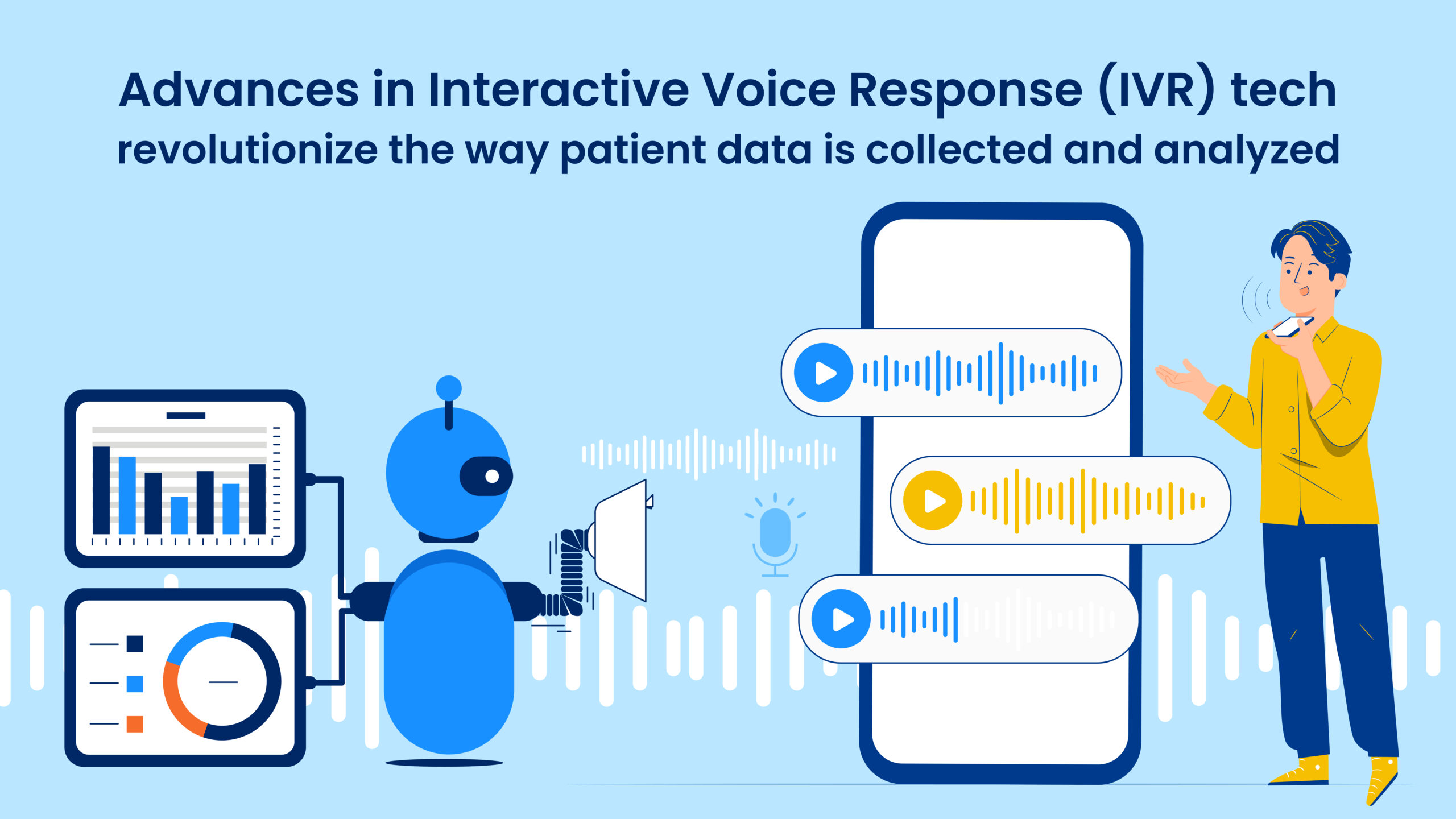About a third of patients drop out of clinical trials before they’re complete. That’s an uncomfortable statistic in an industry where millions of dollars are on the line for each and every trial. It’s a familiar problem in the world of pharmaceutical research, but what’s causing it?
Simply put: the patient experience isn’t always what it should be. And many pharmaceutical companies make the mistake of forgetting that the true focus of a trial isn’t a compound, or even the results at the end – but the human participants themselves.
As Patient-Focused Drug Development (PFDD) gains momentum, pharmaceutical companies and CROs are increasingly open to technological methods that can improve the patient experience. Voice response technology is one of the tools that have the potential to improve patient engagement, and enrich the data that trials generate in the process.
How it works
Interactive Voice Response (IVR) technology uses automated telephone systems to collect patient data using pre-recorded messages or text-to-speech technology. This enables patients to report any symptoms they experience, and to disclose whether they have adhered to protocols. Researchers can then collect and analyze all of that data to build a more complete and more accurate picture of an ongoing trial.
Here, we’re exploring some of the opportunities this presents for clinical trials of the future.
Listening to patients makes them more engaged
Enrolment and retention challenges have dogged the pharmaceutical industry for a long time. The Center for Information and Study of Clinical Trial Participation estimates that half of clinical trials don’t secure enough participants to begin with. For those who manage to recruit enough, the average dropout rate is 30%.
Facing these grim odds, it’s in the interests of any pharmaceutical company to boost patient engagement. Using voice response technology, patients are able to engage in the process in an active way, increasing the likelihood that they’ll see the process through to the end.
Automating away human inaccuracy for more accurate results
Like any complex and labor-intensive process, human error plays a role in clinical trial research. Voice response technology can reduce the effects of human error by automating the process of collecting patient data and storing it appropriately. Once patients provide their input verbally, NLP systems can analyze it and store it in a way that allows researchers and clinicians to retrieve information and critical insights.
This also saves time and cost, by reducing the need for patient interviews and surveys. Patients can provide data in real-time, instead of waiting for researchers to provide the opportunity.
Why actively listening makes commercial sense
Failing to listen to patients can skew the results of clinical trials in ways that may be hard to quantify, but often cause significant commercial problems down the line. For example, a drug’s side effects may be deemed medically or technically acceptable, but if patients feel strongly about those side effects, the drug may see limited adoption in the market. Conversely, a drug may be discarded even though patients are willing to tolerate rare adverse events.
In both cases, simply asking patients could have led to better decision making and better commercial outcomes. And IVR makes it possible to get those answers, early enough for it to make a difference.
Embracing the bright future of clinical trial research with AI-based insights
The number of registered clinical trials continues to balloon, with over 400,000 registered studies ongoing globally as of March 2023. There’s no shortage of pharmaceutical innovation going on – but for researchers, that’s a double-edged sword. Understanding all of that data is now firmly beyond the capacity of human-only teams. And as that data becomes even richer and more comprehensive – thanks to technologies like IVR – there’s an urgent need to augment innovation capabilities to keep pace.
At Similari, we keep our finger on the pulse of the pharmaceutical industry, automatically surveying millions of data points as they emerge. Similari extracts actionable insights for the human researchers who depend on them to identify white spaces, establish budget guardrails, and design effective trials.
Discover how Similari is transforming innovation and clinical trial research through a live demo with our team.

